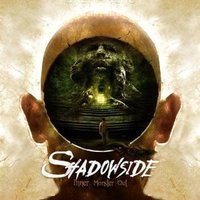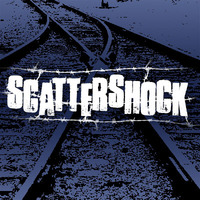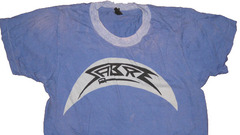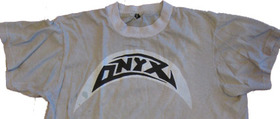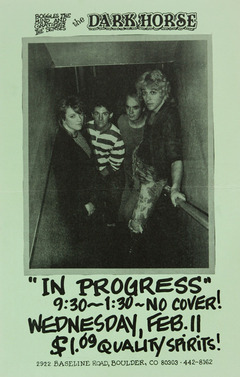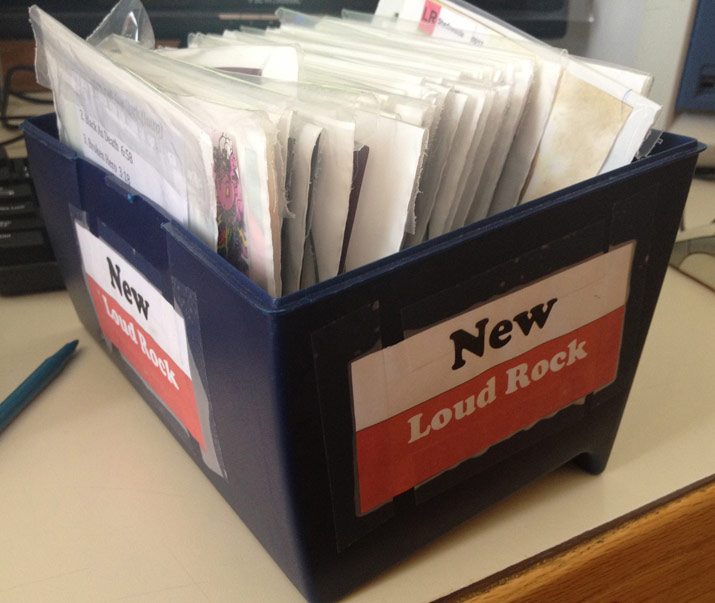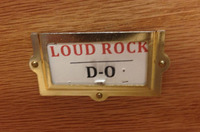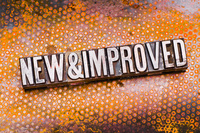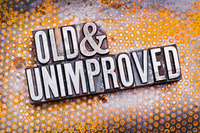Scattershock - A History: Part 2
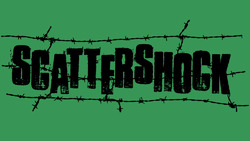 In my recent article, I described the people and events that were at the heart of my early bands and marked the beginning of the trail towards Scattershock. I left off at the end of my stay in Boulder, having made the decision to return to Berkeley to finish school.
In my recent article, I described the people and events that were at the heart of my early bands and marked the beginning of the trail towards Scattershock. I left off at the end of my stay in Boulder, having made the decision to return to Berkeley to finish school.
Once back in Berkeley, Steve Rosenthal and I reunited and started up our songwriting activities again. We got caught up in the MIDI craze and began recording demos that used sequenced drums, bass and keyboards, synchronized to the Fostex 4-track for guitar and vocals. We were calling our project "Secret Life" at that point, and the focus was writing and recording. We mixed a demo tape using our combination of analog tape and MIDI, which included two songs that would eventually become part of the Scattershock repertoire: "Same Time Next Week" and "Don't Wanna Talk".
At the end of my undergraduate years, I made the decision to enter UCSF to study towards a Ph.D. in Pharmaceutical Chemistry. That meant that, Nancy (my wife to be) and I moved from Berkeley to San Francisco. As a very strange coincidence, Mike Levine had taken a job in San Francisco and was relocating from Colorado. Steve was also taking classes at San Francisco State University, making our next musical chapter fall into place effortlessly. Steve, Mike and I decided to join up under the "Secret Life" name. By this time I'd retired the Fostex 4-track, replacing it with a first-generation Pro Tools system, beginning with 4 tracks and eventually expending to 16. We wrote and recorded a bunch of songs during this period, and recorded them into Pro Tools. Mike was doing most of the lead vocals by time and all three of us were taking vocal lessons from Rubinoos drummer and great friend, Donn Spindt. We'd adopted a new name, "Shatterbox", one that better reflected the hard rock and grunge influence that had worked its way into our material. This was a very creative and productive period for all of us. We maintained a rehearsal space, first in the Turko Persian building near the Balboa Park BART station, and then eventually in the 3rd St. Rehearsal Studios near Hunter's Point. Somehow, though, over the course of my 5-ish years in graduate school and my early years in the software industry, we slowly watched our lives grow apart. Mike eventually moved back to Colorado and Steve and I struggled to spend significant amounts of time together.
 Somewhere along the way, Steve and I recognized that we still wanted better recording of the Shatterbox material. Without Mike, we were short a bass player and primary vocalist. We solved the first problem by bringing in Paul Olguin, a great bass player that Steve had played with previously while backing Linda Brady. We'd gotten to know Gannon Kashiwa, a recording engineer in Denver and beta tester for Digidesign, and decided that we would record our songs with him. We gave Paul the earlier Shatterbox recordings and some demo tapes to help him learn all the songs and soon after loaded all our gear into a U-Haul trailer and headed to Denver for a week. It was a memorable week. Working with Gannon was great, both because I didn't need to think about engineering but also because he's a great guy. By the end of the week, we'd tracked 14 songs and headed back to the Bay Area, hard disk in hand.
Somewhere along the way, Steve and I recognized that we still wanted better recording of the Shatterbox material. Without Mike, we were short a bass player and primary vocalist. We solved the first problem by bringing in Paul Olguin, a great bass player that Steve had played with previously while backing Linda Brady. We'd gotten to know Gannon Kashiwa, a recording engineer in Denver and beta tester for Digidesign, and decided that we would record our songs with him. We gave Paul the earlier Shatterbox recordings and some demo tapes to help him learn all the songs and soon after loaded all our gear into a U-Haul trailer and headed to Denver for a week. It was a memorable week. Working with Gannon was great, both because I didn't need to think about engineering but also because he's a great guy. By the end of the week, we'd tracked 14 songs and headed back to the Bay Area, hard disk in hand.
Little did we know that it would be more than a decade before any of that material was finished. In an upcoming article, I'll explain more about why it took so long and how it eventually led to Scattershock and the "Wrong Train" release.
 Post a Comment → Posted on
Post a Comment → Posted on  Monday, July 2, 2012 at 5:42PM
Monday, July 2, 2012 at 5:42PM  MIDI,
MIDI,  Pro Tools,
Pro Tools,  Scattershock,
Scattershock,  Wrong Train,
Wrong Train,  grunge,
grunge,  hard rock,
hard rock,  heavy metal,
heavy metal,  metal,
metal,  music | in
music | in  About
About 